I am wondering, are there any languages allows you to add/delete/update any class on the fly without reloading whole application? (Provided that I can accept some inconveniences like making sure that there is no methods running at the moment + some extra effort to 'migrate' class data members).
Web applications where you replace 1 file and it is used on the next client request is not what I need (like Perl, PHP). Application must be continuously running, and it have some internal state.
Other requirements are
- No GIL or similar issues preventing from utilizing SMP
- Preferably - existence of JIT-like VM (i.e. where performance is close to native code). Ideal solution would be to be able to reload module in CLang or any other LLVM-based language. It would be just perfect.
About the answers already made:
- .NET/Java is not suitable - they both have too bulky VM's, and significant part of app will be running on Linux.
- Erlang - looks like it's possible, but it's terrible for my naked eye, I just cannot look calm at it's if's, case's and strings. Also, I would prefer to avoid transfering bare sources to clients, compiled bytecode would be much better.
